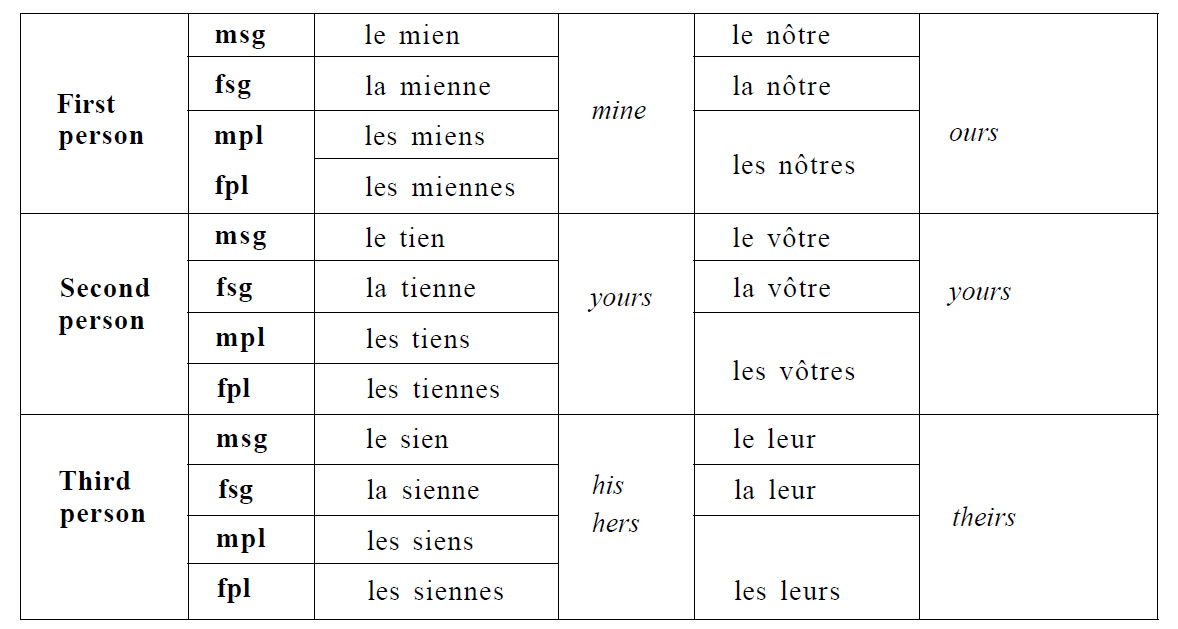Language/French/Grammar/Possessive-pronouns
Jump to navigation
Jump to search
Rate this lesson:
Possessive pronouns
Summary table of possessive pronouns
Possessive pronouns agree in gender and number with a noun mentioned or implied elsewhere in the discourse:
- Voici ta clef. Rends-moi la mienne
Here is your key. Give me back mine
- Il portait un chapeau qui n'était pas le sien
He was wearing a hat which wasn't his
- Ils ont emporté mes notes, mais j'ai gardé les leurs
They took away my notes, but I kept theirs
- Tu ne peux pas prendre ceux-là, ils ne sont pas à nous. Ce sont les leurs
You can't take those, they don't belong to us. They are theirs.
- Vos idées ne sont pas toujours les nôtres
Your ideas aren't always the same as ours
les siens also has the special meaning of 'one's family': On travaille pour les siens 'People work for their families', and les nôtres can mean 'with us', as in:
- Elle n'était pas des nôtres
She wasn't with us


